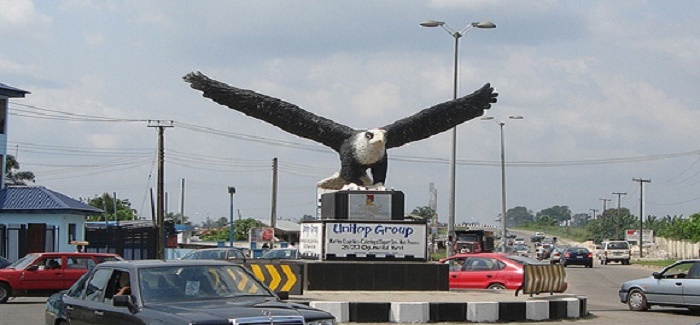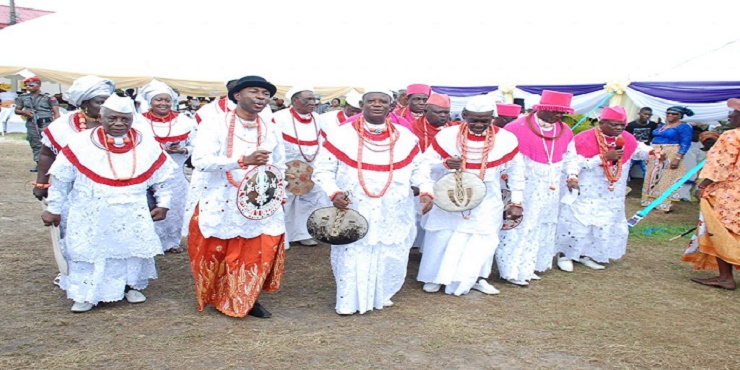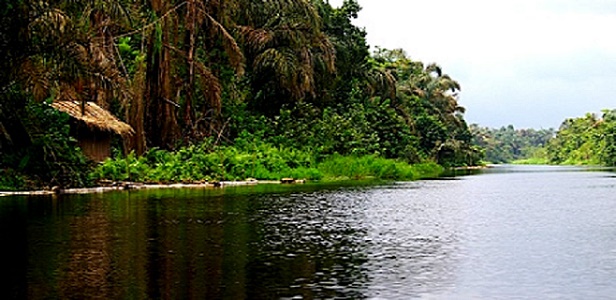
History
The area called Delta State was once an integral part of the old Western Region of Nigeria. It became an autonomous entity on August 27, 1991 after having been part of the old Midwestern State (1963 1976) and the defunct Bendel State (1976 1991).Delta State was created from the then Bendel State 27th August 1991 by the then regime of General Ibrahim Babangida. Delta State is named after the delta region of the River Niger. It's capital is Asaba.
Warri is the biggest commercial city in the state. Other major towns are Agbor, Ughelli, Oleh, Ozoro, Oghara, Sapele, Koko, Burutu, Okpanam and Ogwashi-ukwu. Delta State can be considered a miniature version of Nigeria, with various ethnic groups.
Delta State shares common boundaries with Edo and Ondo States to the north west, Imo and Anambra to the north east, Rivers and Bayelsa States to the south east. In the south west and south it has approximately 122 kilometres of coastline bounded by the Bight of Benin on the Atlantic ocean.
Delta State started with twelve local government areas. These were split further into nineteen local governments on September 27, 1991, and to twentyfive LGAs in 1997. Asaba, located at the northern end of the state, is the capital. A master plan for Asaba Capital Territory, with an estimated area of 762 sq. km and designed to transform Asaba into a modern metrop olis, is being pursued by the state government.
Location:
Location: Delta State lies roughly between longitudes 5°00 and 6°45'E and latitudes 5°00 and 6°30'N. It has a total land area of 16,842 sq. km. The states bordering Delta State are Edo to the north, Ondo to the northwest, Anambra to the east and Bayelsa and Rivers to the southeast. On its southern flank is 160 km of the coastline of the Bight of Benin.People and Culture::

Delta State has an estimated population of about 4.2 million with Urhobo, Itesekiri, Ijaw (Izon), Isoko and Anioma (Igbo) as the main ethnic groups. These groups share ancestral and traditional administrative systems, evident in their dress, language, festivals, music and folklore. The people are hospitable, enlightened, resourceful and hardworking.
Geography:
The State presently covers a landmass of about 18,050 Km2 of which more than 60% is land. The State lies approximately between Longitude 5°00 and 6°.45' East and Latitude 5°00 and 6°.30' North. It is bounded in the North by Edo State, the East by Anambra State, South-East by Bayelsa State, and on the Southern flank is the Bight of Benin which covers about 160kilometres of the State's coastline. Delta State is generally low-lying without remarkable hills. The State has a wide coastal belt inter-lace with rivulets and streams, which form part of the Niger-Delta.Weather/Climate:

Delta State is situated in the tropics and therefore experiences a fluctuating climate, ranging from the humid tropical in the south, to the subhumid in the northeast. The lessening of humidity towards the north is accompanied by an increasingly marked dry season. The average rainfall is about 266.5mm in the coastal areas and 190.5mm in the extreme north. Rainfall is heaviest in July. Temperature increases from the south to the north. In Warri, located in the south for example, the average daily temperature is 30°C, while the temperature in Asaba in the north eastern area is 44°C.
Natural resources:
There are various solid mineral deposits within state - [[CRUDE OIL industrial clay, silica, lignite, kaolin, tar sand, decorative rocks, limestone, etc. These are raw materials for industries such as brickmaking, ceramics, bottle manufacturing, glass manufacturing, chemical/insulators production, chalk manufacturing and sanitary wares, decorative stone cutting and quarrying. Emergency Numbers (112, 199, 08033797766, 08125273232, 07032927000, 08036684974.)
Banks in Delta
Brief History of Delta
Business and Economy
Festivals and Carnivals
General and Teaching Hospitals
Hotels and Guest Houses
Local Governments & LCDAs
Delta State Ministries Agencies and Parastatals
Police Stations
Popular Markets
Prominent Towns
Restaurants, Bars, Night Clubs
Shopping Malls
Delta State Executive Council
Tourist Attractions
Traditional Rulers
Banks in Delta
Brief History of Delta
Business and Economy
Festivals and Carnivals
General and Teaching Hospitals
Hotels and Guest Houses
Local Governments & LCDAs
Delta State Ministries Agencies and Parastatals
Police Stations
Popular Markets
Prominent Towns
Restaurants, Bars, Night Clubs
Shopping Malls
Delta State Executive Council
Tourist Attractions
Traditional Rulers




